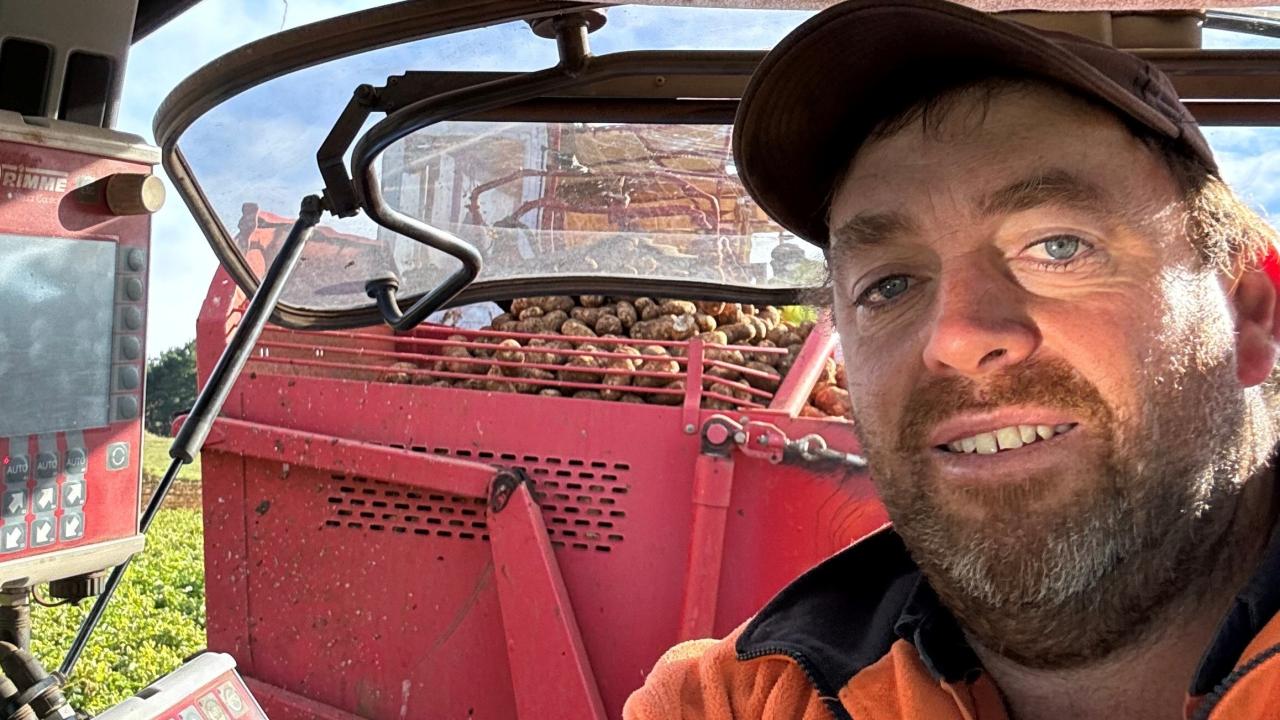Simplot potato growers left in the lurch

Three weeks out from potato planting, Tasmanian growers have been unable to negotiate an acceptable price from the state’s largest processor.
Having rejected a six percent price cut due to rising costs in areas like fertiliser and wages, and with threats from the company’s new US-based management team that it will import spuds from India if needed, Tasmanian growers have been left reeling and believe they are being “treated with contempt”.
Potato Growers Committee chair Leigh Elphinstone said that following the first price negotiation meeting in June there’s only been one other meeting and Simplot’s position is unchanged.
“They’re unwilling to negotiate, we can’t even get a response to letters that we’ve sent,” he said.
“A six percent price cut combined with a five percent increase in growing costs means growers are facing a profit margin reduction of 35-40 percent.
“Yet I’ve noticed that McDonald’s has upped its price for a large fries to $5, where it was around $4.30 last year - and of that only 11 cents goes back to the grower and quite frankly, we’d be happy with 12 cents - that’s how little we’re asking for.
“We get 50 cents a kilo for our product from Simplot and it’s sold for $43 per kilo.”
Trust in the processor has dwindled fast since it unexpectedly abandoned a gross margin model that delivered stability for its 140 growers and took into account variables in production costs.
TasFarmers CEO Nathan Calman said that there’s been “incredibly poor behaviour from some of the processors, particularly Simplot, around price”.
“If the risk is too great for the rewards of growing a crop, that may cause many growers to question whether there's a future in growing potatoes,” Mr Calman said.
“The potato industry, up until this year with Simplot, has worked incredibly hard around having a fair and equitable model so that we don't see huge requests for price rises or drops year-to-year, where price is determined based on input costs and a fair return for producers.
“At the moment, we've seen Simplot trying to walk away from that and essentially request a 40 per cent drop in the profit that a producer would receive for growing a crop of potatoes at a time when the risk has never been higher.”
The Potato Growers Committee is working tirelessly behind the scenes to try to get Simplot back to the negotiating table while farmers are considering their options going forward, with some growers already involved in the dairy and beef industry talking about abandoning their crop with cattle prices on a positive trajectory.
“Simplot is intent on dictating rather than negotiating, and our fear is that they will leave Tasmania and bring in potatoes from halfway around the world, with no regard to quality, food security, the net zero greenhouse gas emission targets or the local industry,” Mr Elphinstone said.
“If they leave we’re buggered and so are consumers. It’s been 20 years since the Fair Dinkum Food Campaign and really we’re in the exact same position if not worse than before.”
Farmers who have made seed and land lease commitments will have no time to change tack this season and transitioning out of potato growing can take several years, however for some a change is on the cards.
“Mop-top is the least of our worries,” Scottsdale grower Trevor Hall said.
“Reducing our gross margin from $8000 per hectare to under $5000 means people will have to transition out of growing spuds, you can’t survive on that margin.
“It’s a bad situation that we never saw coming.”
Meanwhile, the uncertainty of which seed lines will be affected by mop-top is adding to farmer concerns going into the planting season.
“Growers don’t want to plant infected seed, so we’ll just be growing less spuds,” Mr Elphinestone said.
“Luckily an overall good last season meant that not all of the crop was processed so there are stores that can be carried through.
“It’s also good to know that other countries have found ways to manage this disease with little impact.”




Add new comment
Comments
Industry sell offs
This is the problem you get from globalization, where a business, developed by a local, enterprising family, into a profitable, successful concern, is bought out by an overseas company who's main concern is making more money. The overseas entity has no connection with the local community, except to ensure it makes more money by insisting that the local division of the company makes just as much profit as those in countries with a lower standard of living. In effect these overseas companies are trying to create an universal playing field in terms of profit not recognizing that they are in effect "ripping off" labor in undeveloped counties while stifling on going profitable businesses elsewhere. Where does Simplot Tasmania sell most of its potato products? If it is Australia then Australian should be the beneficiaries as well as the parent company.